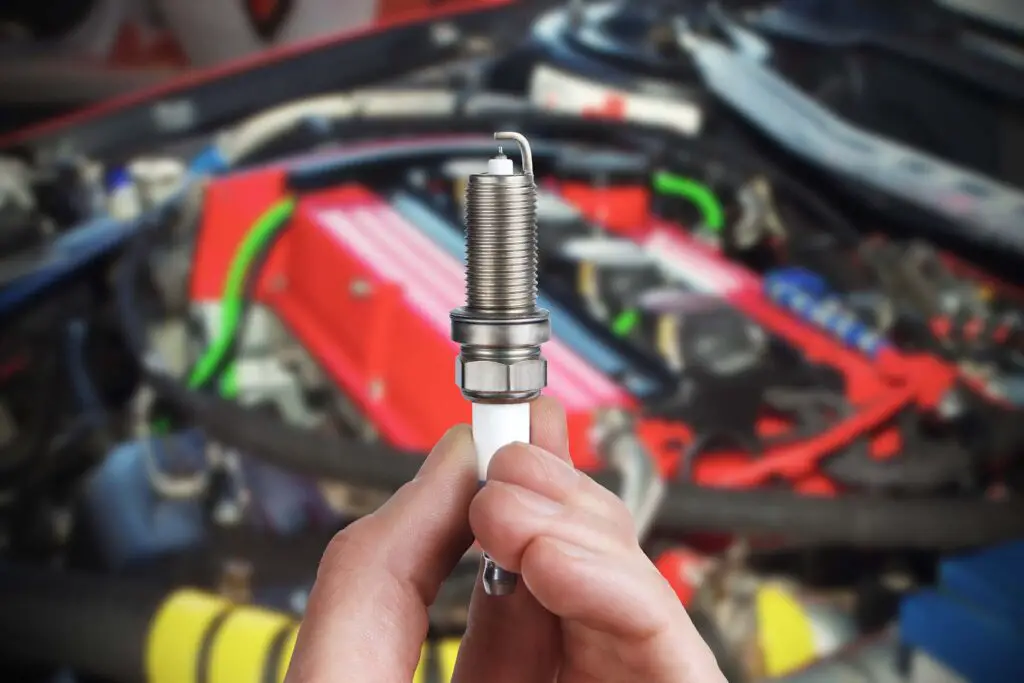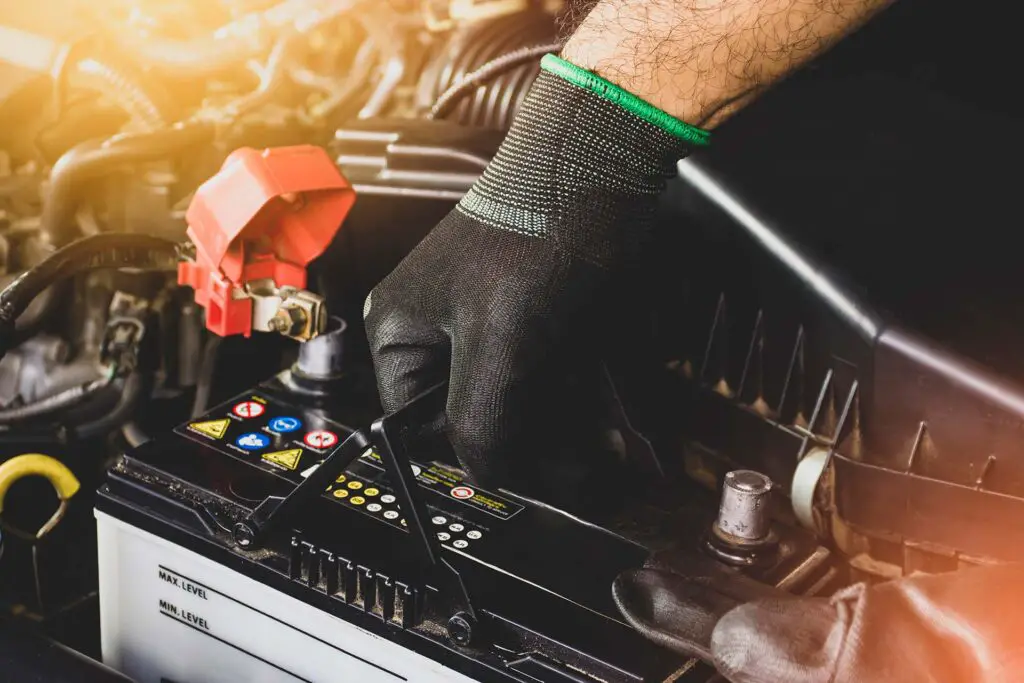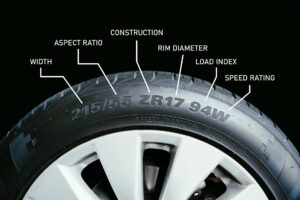As a proud owner of a car, staying on top of the Toyota maintenance schedule is essential to ensure its longevity, performance, and safety on the road. In this comprehensive guide, we’ll delve into understanding all the steps for an optimal maintenance schedule and how to get the best preventive car care.
Understand How a Toyota Maintenance Schedule Works
Your Toyota’s maintenance schedule serves as a comprehensive guide to keeping your vehicle in optimal condition throughout its lifespan. From routine inspections to part replacements, each task outlined in the schedule is meticulously designed to ensure that your Toyota runs smoothly and efficiently for years to come.
If you think this is something you don’t have to worry about, just consider that Toyota was globally recognized as the top motor vehicle manufacturer in terms of worldwide sales. It has more than 10 million vehicles globally sold. So, having a safe maintenance stop is a must.
The Basics of Scheduled Maintenance
A maintenance schedule is a systematic plan that outlines the specific tasks and intervals at which they should be performed to keep a vehicle running smoothly. For Toyota owners, planning this schedule is more than just a recommendation. It’s a crucial aspect of responsible vehicle ownership. Regular maintenance not only helps prevent unexpected breakdowns and costly repairs but also ensures optimal performance, fuel efficiency, and safety on the road.
Automotive Warranty Services – Milestone Maintenance Intervals
Key maintenance milestones, such as the 5,000, 15,000, 30,000, and 60,000-mile marks, are significant checkpoints in your car’s lifespan. These intervals mark crucial stages where specific maintenance tasks are essential for keeping your vehicle in top condition.
Typically, milestone maintenance includes essential services such as oil changes, fluid checks, filter replacements, tire rotations, and comprehensive inspections. Doing these milestones ensures that your ride receives the care it needs at the right times. It also prevents premature wear and maintains peak performance.

Navigating Your Toyota’s Service Needs
Ensuring your Toyota receives the necessary service and maintenance is essential for keeping it performing at its best. From routine oil changes to checking vital fluids, staying on top of these basic maintenance tasks can prolong the life of your vehicle and prevent costly repairs down the road.
Oil Changes and Fluid Checks
Regular oil changes are the lifeblood of your Toyota’s engine, helping to lubricate its moving parts and maintain optimal performance. The recommended intervals for oil changes typically range from every 5,000 to 10,000 miles, depending on factors such as driving habits and environmental conditions.
Make a vehicle maintenance checklist and avoid neglecting these tasks. Otherwise, it can lead to engine damage, reduced fuel efficiency, and potential breakdowns. Therefore, it’s imperative to adhere to the recommended intervals for oil changes and fluid checks, as outlined in your Toyota’s maintenance schedule, to keep your vehicle running smoothly.

Brake, Tires, and Battery Maintenance
Your safety on the road heavily relies on the condition of your brakes, tires, and battery. Regular inspections and maintenance are necessary to ensure these vital components are in optimal working condition.
Check the Brakes
Check your brakes regularly for signs of wear, such as squeaking or grinding noises, pulsating sensations when braking, or longer stopping distances. Typically, brake pads should be replaced every 20,000 to 60,000 miles, depending on driving habits and road conditions. However, it’s essential to have your brakes inspected by a certified technician as part of routine maintenance to catch any issues early and prevent brake failure.
Maintain the Tires
Proper tire maintenance includes regular tire rotations, tire pressure checks, and visual inspections for signs of wear or damage. Tire rotation should be performed every 6,000 to 8,000 miles to ensure even tread wear and maximize tire longevity.
Additionally, maintaining the correct tire pressure is crucial for safety, fuel efficiency, and tire performance. Inspect your tires regularly and replace them when the tread depth reaches 2/32 of an inch to maintain optimal traction and handling.
Test the Battery
A healthy battery is essential for starting your vehicle and powering its electrical components. While the lifespan of a car battery can vary depending on factors such as climate and usage, it’s recommended to have your battery tested regularly, especially before extreme weather conditions.
Typically, car batteries last around 3 to 5 years, but it’s essential to monitor their condition and replace them when signs of deterioration, such as slow cranking or dim headlights, are observed. Regularly cleaning the battery terminals and ensuring a secure connection can also help prolong battery life.
Advanced Maintenance for Long-Term Vehicle Health
While oil changes and tire rotations are crucial for routine maintenance, there are less frequent but equally critical tasks that deserve attention to ensure the long-term health of your Toyota. Timing belt replacements, spark plug changes, and filter replacements are among these essential maintenance procedures.
- Timing belts. While these are durable, they are subject to wear and tear over time and can break without warning, leading to severe engine damage. Toyota typically recommends replacing the timing belt every 60,000 to 100,000 miles, depending on the model and engine type.
- Spark plugs. Over time, spark plugs can become fouled or worn, leading to decreased engine efficiency, rough idling, and poor fuel economy. Toyota recommends replacing spark plugs every 30,000 to 100,000 miles, depending on the type of spark plugs and driving conditions.
- Filter replacements. Filters, including air filters, oil filters, and fuel filters, play a vital role in maintaining the cleanliness of your car’s engine and cabin. Air filters prevent dirt, dust, and debris. Oil filters remove contaminants from the engine oil, and fuel filters ensure clean fuel reaches the engine. Toyota recommends replacing air filters every 15,000 to 30,000 miles, oil filters with every oil change, and fuel filters as needed based on driving conditions.

Diagnostic Checks and Software Updates
In today’s increasingly complex vehicles, diagnostic checks and software updates play a crucial role in maintaining optimal performance and addressing potential issues. Diagnostic tests allow certified technicians to identify and diagnose any underlying problems with your Toyota’s systems, from engine performance to emissions controls.
Furthermore, software updates are essential for keeping your Toyota’s onboard computer systems up-to-date with the latest enhancements and improvements. These updates can address software bugs, improve system functionality, and enhance overall vehicle performance. Whether it’s updating the engine control unit (ECU) software or the infotainment system, staying current with software updates ensures your Toyota operates at its best.

Tailoring Maintenance to Your Driving Habits
When it comes to maintaining your four-wheeler, one size doesn’t fit all. Your driving habits and the conditions in which you operate your vehicle can significantly impact its maintenance needs. Extreme driving conditions, such as driving in dusty environments or frequently engaging in short trips, can necessitate adjustments to your maintenance schedule to ensure your Toyota remains in optimal condition.
Adjustment for Severe Conditions
Extreme driving conditions can take a toll on your Toyota’s components, leading to accelerated wear and potential damage. For example, driving in dusty environments can clog air filters more quickly, reducing engine efficiency and potentially causing overheating. Similarly, frequent short trips, especially in stop-and-go traffic, can put additional strain on the engine and exhaust system, leading to premature wear and decreased fuel efficiency.
To mitigate the effects of severe driving conditions, it’s essential to modify your maintenance schedule accordingly. This may include more frequent inspections and replacements of air filters, fluids, and other critical components.
Personalizing Your Maintenance Plan
Working closely with a Toyota service advisor can help you develop a maintenance plan tailored to your specific needs and driving patterns. These professionals have the expertise and resources to assess your vehicle’s condition and recommend maintenance tasks based on your unique circumstances.

Maximizing the Benefits of ToyotaCare Service Plan and Warranty
ToyotaCare and warranty services offer invaluable peace of mind and protection for Toyota owners. Understanding and maximizing these benefits can help you maintain your vehicle’s reliability and save on potential repair costs.
Overview of ToyotaCare Benefits
ToyotaCare is a comprehensive service plan offered by Toyota that covers scheduled maintenance and roadside assistance for a specified period. With ToyotaCare, Toyota owners receive complimentary maintenance services, including oil changes, tire rotations, and multi-point inspections, performed by certified technicians at authorized Toyota dealerships.
Additionally, ToyotaCare provides 24/7 roadside assistance, offering services such as towing, fuel delivery, lockout assistance, and battery jump-starts in case of emergencies. This all-inclusive package ensures that Toyota owners can enjoy worry-free driving knowing that their vehicle’s maintenance needs are taken care of, and assistance is readily available when needed.
Navigating Warranty and Extended Service Plans
Toyota also provides extended service plans, offering added protection beyond the original warranty period. These plans cover unexpected repair costs for specified components and systems, even after the warranty expires. Compare coverage options, deductibles, and costs to choose the best plan for your needs and budget. To optimize Toyota’s warranty and extended service options, take the following steps:
- Review terms. Understand the warranty and extended service plan terms, including coverage details and requirements.
- Maintain schedule. Follow the recommended maintenance schedule outlined in your owner’s manual to preserve warranty coverage.
- Document maintenance. Keep detailed records of maintenance and repairs for warranty claims or extended service coverage.
- Seek clarification. If you have questions about warranties or service plans, consult your Toyota dealer or service advisor for guidance.

Toyota Recommended Maintenance Schedule by Specific Models
Keeping up with the recommended maintenance schedule is essential to ensure your Toyota vehicle’s longevity and performance. Below, you’ll find a summarized maintenance schedule tailored to some popular Toyota models. For example, the Toyota Tacoma maintenance schedule, or the Toyota RAV4 maintenance schedule.
| Model | Oil Change Interval | Tire Rotation Interval | Brake Inspection Interval | Fluid Checks Interval |
| RAV4 | Every 5,000-7,500 miles | Every 5,000-7,500 miles | Every 15,000 miles | Every 15,000 miles |
| Tacoma | Every 5,000-7,500 miles | Every 5,000-7,500 miles | Every 15,000 miles | Every 15,000 miles |
| Corolla | Every 5,000-7,500 miles | Every 5,000-7,500 miles | Every 15,000 miles | Every 15,000 miles |
| Highlander | Every 5,000-7,500 miles | Every 5,000-7,500 miles | Every 15,000 miles | Every 15,000 miles |
Organize the Maintenance Schedule and Ride Safely
Mastering Toyota’s maintenance schedule and leveraging services such as ToyotaCare and warranty plans are essential steps toward ensuring the longevity, reliability, and performance of your vehicle. By understanding and adhering to Toyota service intervals, tailoring services to your driving habits, and maximizing benefits offered by ToyotaCare and warranty services, you can safeguard your investment and enjoy peace of mind on the road. Consult with certified Toyota technicians for personalized advice and stay proactive in your preventive car care efforts to maintain your Toyota’s reliability for years to come.








